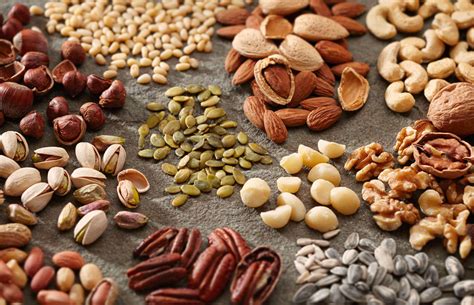Intro
Boost heart health with 5 nutritious foods, including omega-rich fish, antioxidant berries, and fiber-rich oats, to reduce inflammation and promote cardiovascular wellness naturally.
Eating a balanced diet is crucial for maintaining a healthy heart. A heart-healthy diet consists of foods that are rich in nutrients, fiber, and healthy fats, and low in saturated and trans fats, added sugars, and sodium. Incorporating the right foods into your diet can help lower your risk of heart disease, reduce blood pressure, and improve overall cardiovascular health. In this article, we will explore five heart-healthy foods that you should include in your diet to keep your heart strong and healthy.
A well-planned diet that includes a variety of whole, unprocessed foods can provide the necessary nutrients, vitamins, and minerals to support heart health. Foods such as fruits, vegetables, whole grains, lean proteins, and healthy fats are all essential components of a heart-healthy diet. By making informed food choices, you can reduce your risk of developing heart disease and maintain a healthy heart for years to come. With so many delicious and nutritious options available, it's easy to create a diet that is both satisfying and beneficial for your heart.
Incorporating heart-healthy foods into your diet can have a significant impact on your overall health and wellbeing. By making a few simple changes to your eating habits, you can reduce your risk of heart disease, improve your energy levels, and maintain a healthy weight. Whether you're looking to prevent heart disease or manage existing heart health conditions, eating a balanced diet that includes a variety of whole, nutrient-dense foods is an excellent place to start. With the right foods and a little bit of planning, you can keep your heart strong, healthy, and functioning at its best.
Leafy Greens

Nutritional Benefits of Leafy Greens
Leafy greens are nutrient-dense foods that provide a range of essential vitamins, minerals, and antioxidants. Some of the key nutrients found in leafy greens include: * Vitamin A: important for healthy vision, immune function, and skin health * Vitamin C: essential for immune function, collagen production, and iron absorption * Calcium: crucial for healthy bones, teeth, and muscle function * Iron: necessary for healthy red blood cells and preventing anemia * Fiber: helps to regulate bowel movements, lower cholesterol levels, and control blood sugar levelsBerries

Antioxidant Properties of Berries
Berries are rich in antioxidants, including flavonoids, anthocyanins, and ellagic acid. These compounds have been shown to have anti-inflammatory and anti-cancer properties, and may help to protect against age-related diseases such as heart disease, cognitive decline, and cancer. Some of the key antioxidant properties of berries include: * Reducing oxidative stress and inflammation * Improving immune function and reducing the risk of infection * Protecting against cell damage and reducing the risk of cancer * Supporting healthy aging and reducing the risk of age-related diseasesFatty Fish

Omega-3 Fatty Acids in Fatty Fish
Fatty fish are rich in omega-3 fatty acids, including EPA and DHA. These compounds have been shown to have anti-inflammatory properties, and may help to reduce the risk of heart disease, cancer, and other chronic diseases. Some of the key benefits of omega-3 fatty acids include: * Reducing inflammation and oxidative stress * Improving heart health and reducing the risk of heart disease * Supporting brain health and reducing the risk of cognitive decline * Aiding in weight management and reducing the risk of obesityAvocados

Nutritional Benefits of Avocados
Avocados are nutrient-dense foods that provide a range of essential vitamins, minerals, and antioxidants. Some of the key nutrients found in avocados include: * Vitamin C: essential for immune function, collagen production, and iron absorption * Vitamin E: important for healthy skin, hair, and eyes * Potassium: crucial for healthy blood pressure, heart function, and muscle contractions * Fiber: helps to regulate bowel movements, lower cholesterol levels, and control blood sugar levels * Healthy fats: support heart health, aid in weight management, and provide sustained energyNuts and Seeds

Antioxidant Properties of Nuts and Seeds
Nuts and seeds are rich in antioxidants, including flavonoids, phenolic acids, and carotenoids. These compounds have been shown to have anti-inflammatory and anti-cancer properties, and may help to protect against age-related diseases such as heart disease, cognitive decline, and cancer. Some of the key antioxidant properties of nuts and seeds include: * Reducing oxidative stress and inflammation * Improving immune function and reducing the risk of infection * Protecting against cell damage and reducing the risk of cancer * Supporting healthy aging and reducing the risk of age-related diseasesWhat are the benefits of a heart-healthy diet?
+A heart-healthy diet can help to reduce the risk of heart disease, lower blood pressure, and improve overall cardiovascular health. It can also help to manage weight, improve energy levels, and reduce the risk of other chronic diseases such as diabetes and certain types of cancer.
What foods should I include in a heart-healthy diet?
+A heart-healthy diet should include a variety of whole, unprocessed foods such as fruits, vegetables, whole grains, lean proteins, and healthy fats. Some examples of heart-healthy foods include leafy greens, berries, fatty fish, avocados, and nuts and seeds.
How can I incorporate more heart-healthy foods into my diet?
+Start by making small changes to your eating habits, such as adding a serving of fruits or vegetables to your meals, or swapping out unhealthy fats for healthier options. You can also try meal planning and prep to ensure that you have healthy options available throughout the day.
Can a heart-healthy diet help to lower cholesterol levels?
+Yes, a heart-healthy diet can help to lower cholesterol levels by reducing the intake of saturated and trans fats, and increasing the intake of soluble fiber, healthy fats, and plant-based proteins. Foods such as oats, barley, and fruits and vegetables are high in soluble fiber, which can help to bind to bile acids and lower cholesterol levels.
How can I maintain a healthy weight through diet and exercise?
+Maintaining a healthy weight requires a combination of a balanced diet and regular exercise. Focus on whole, unprocessed foods, and aim to include a variety of fruits, vegetables, whole grains, and lean proteins in your diet. Aim for at least 150 minutes of moderate-intensity exercise per week, and incorporate strength training and high-intensity interval training to build muscle and boost metabolism.
In conclusion, incorporating heart-healthy foods into your diet can have a significant impact on your overall health and wellbeing. By making informed food choices and including a variety of whole, nutrient-dense foods in your diet, you can reduce your risk of heart disease, improve your energy levels, and maintain a healthy weight. Whether you're looking to prevent heart disease or manage existing heart health conditions, eating a balanced diet that includes a variety of heart-healthy foods is an excellent place to start. We invite you to share your thoughts and experiences with heart-healthy eating, and to join the conversation on social media using the hashtag #hearthealthyfoods. Together, we can work towards creating a healthier, happier community, one meal at a time.
